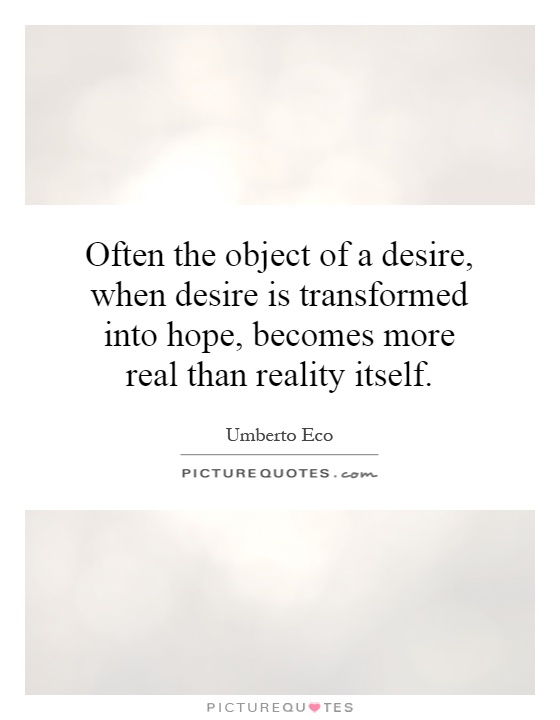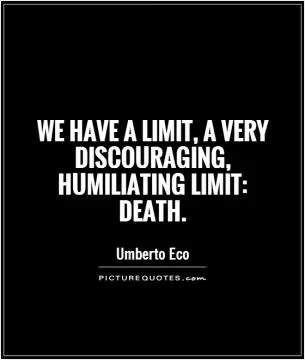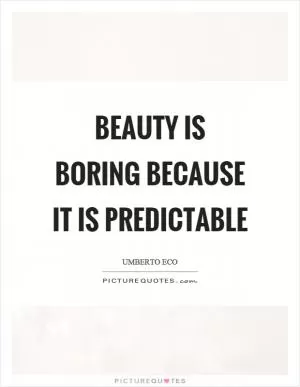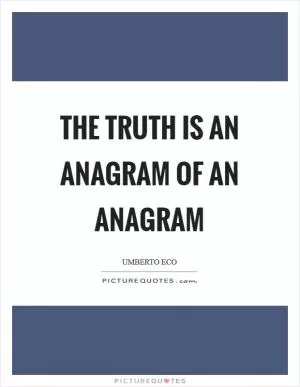Often the object of a desire, when desire is transformed into hope, becomes more real than reality itself

Often the object of a desire, when desire is transformed into hope, becomes more real than reality itself
Umberto Eco, the renowned Italian novelist, philosopher, and semiotician, was known for his complex and thought-provoking works that often delved into the nature of desire, hope, and reality. In his writings, Eco frequently explored the idea that the object of desire, when transformed into hope, can take on a heightened sense of reality that surpasses the physical world.One of Eco's most famous works, "The Name of the Rose," is a prime example of this concept in action. The novel follows the Franciscan friar William of Baskerville as he investigates a series of murders in a remote monastery in the 14th century. Throughout the story, William becomes obsessed with uncovering the truth behind the killings, and his desire for knowledge and justice drives him to pursue the mystery with unwavering determination.
As William's desire for the truth transforms into hope, the object of his quest – the solution to the murders – takes on a life of its own. The truth becomes more than just a mere fact; it becomes a symbol of justice, righteousness, and order in a chaotic world. In William's mind, the truth becomes a tangible reality that he must strive to achieve at all costs.
Eco's exploration of desire, hope, and reality in "The Name of the Rose" reflects his broader philosophical beliefs about the nature of human experience. He believed that our desires and hopes shape our perception of reality, and that the objects of our desires can become more real to us than the physical world around us.












 Friendship Quotes
Friendship Quotes Love Quotes
Love Quotes Life Quotes
Life Quotes Funny Quotes
Funny Quotes Motivational Quotes
Motivational Quotes Inspirational Quotes
Inspirational Quotes